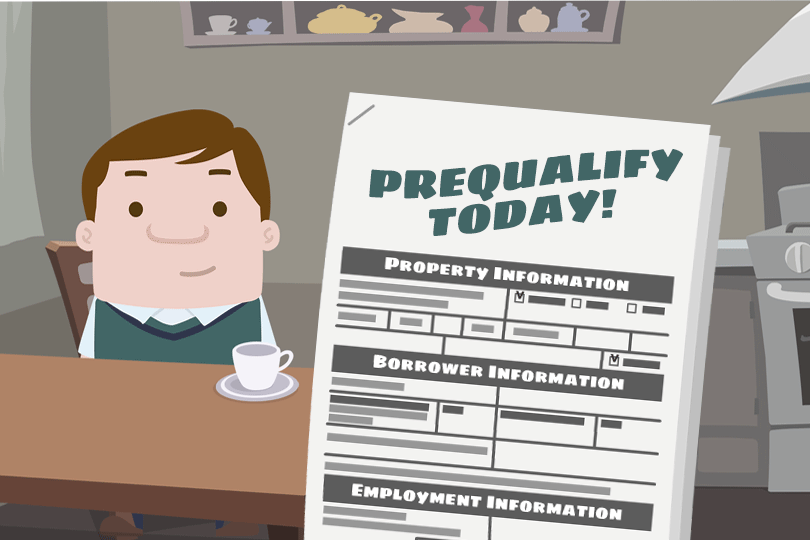Prequalifying for an FHA Mortgage

Pre-Qualifying
Getting prequalified is an initial step toward the loan. You are not committing to the mortgage yet, just exploring your options.
It helps to think like a lender when dealing with the paperwork. What does it take to start crunching the numbers to see how much loan you can afford and what kind of loan is right for you? Basic house price ranges, your current income, plus information about your employment and credit scores and etc.
For prequalifying, you’ll want to have the general information about your income (monthly and annual), the amount of debt you carry each month, and your credit scores, but don’t be surprised if you are asked about estimated property taxes, your own estimation of your credit (“excellent”, “good”, and “fair” are common) and other details.
The information you need to get preapproved is more involved. Your loan officer will need contact information for your employers--past and present depending on circumstances. You will also need to provide tax returns, you’ll be required to fill out and sign forms giving your loan officer permission to request your credit reports and obtain other data protected by federal privacy laws.
You will definitely need an asking price or a ballpark estimate of the loan in mind; remember that the sale price of the house may be higher or lower than the appraised value which will affect the terms and conditions of your mortgage.
FHA Loan Pre-Approval
Depending on the nature of your employment, at pre-approval time you may find your lender wants you to submit additional documentation. If you have a lower credit score but have compensating factors, those factors must be documented with deposit slips, receipts, or other material.
Those seeking an FHA loan as self-employed or small business owners may need to submit business plans, profit-and-loss statements, business tax returns and other things the lender needs to establish your income and employment stability. Some of the paperwork rules are from the FHA Lenders Handbook, but others vary depending on the lender; state law, etc. Your participating lender will explain any additional requirements that may be necessary to preapprove you for the loan.
Preapproval of your loan can help you when searching for a home--the seller is more likely to take you seriously than the buyer who appears to be window shopping. If you have already found your dream home and are trying to make an offer (depending on circumstances) be sure to ask your loan officer about the status of your loan approval if the current sale you are trying to make falls through.
Remember, pre-approval does not guarantee that your loan is definitely going through. Borrowers who make the mistake of missing a payment or applying for another large line of credit before the loan has closed learn the hard way that no home loan is “bulletproof” if there are sudden changes to your credit, debt ratios, or income before closing day.
------------------------------
RELATED VIDEOS:
Show Them You're Serious By Depositing Earnest Money
Homebuyers Benefit From the Work Done by Freddie Mac
Your Second Mortgage Is a Home Equity Loan

Do you know what's on your credit report?
Learn what your score means.







